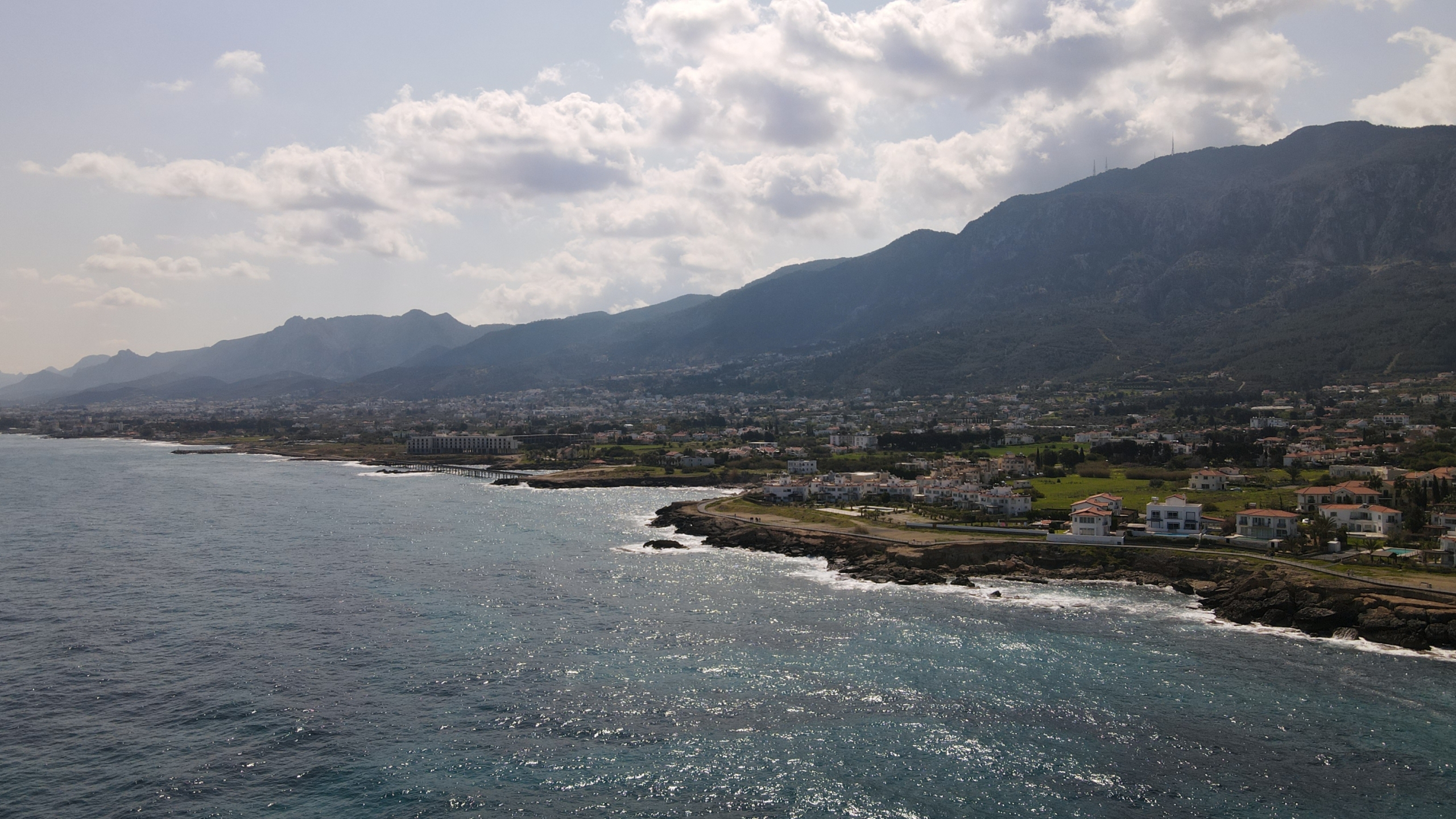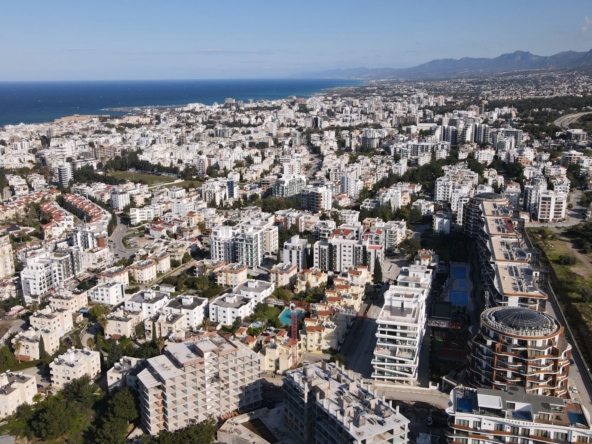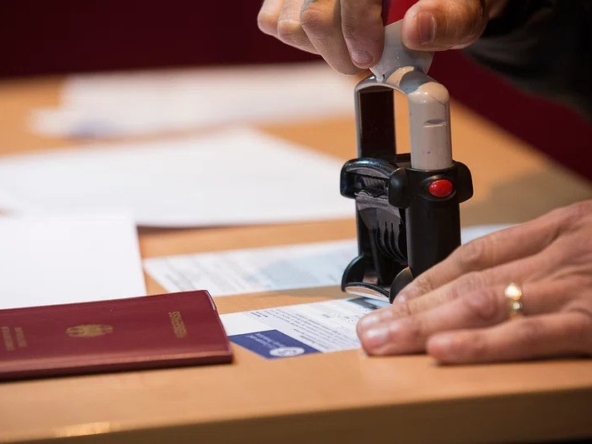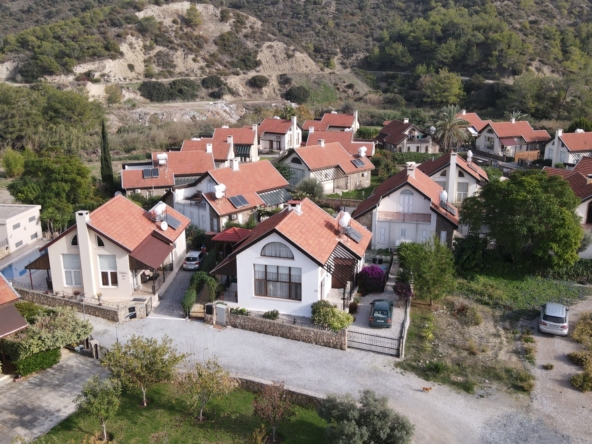North of Cyprus – Turkish Republic of Northern Cyprus
Northern Cyprus, also known as the Turkish Republic of Northern Cyprus, is a self-declared state located on the northern part of the island of Cyprus. It is considered by the international community as an occupied territory of the Republic of Cyprus, but it has its own government, currency, and culture. Despite its status, Northern Cyprus is a unique and fascinating destination, offering visitors a wealth of attractions, from stunning beaches to ancient ruins, and a rich history that dates back thousands of years.
Northern Cyprus is a unique and fascinating destination that offers visitors a wealth of attractions, from its beautiful beaches and ancient ruins to its rich culture and history. Despite its status as an occupied territory, the region has its own government, currency, and culture, and it is an accessible and affordable destination for traveler’s and real estate investors alike. Whether you’re looking for a relaxing beach holiday, an adventure in history, or a smart real estate investment, Northern Cyprus has something to offer.
Geography and Climate
Northern Cyprus is located in the eastern Mediterranean, with the Mediterranean Sea to the south and the Kyrenia Mountains to the north. The island is known for its beautiful coastline, with numerous bays and beaches that offer crystal-clear waters and plenty of opportunities for water sports and relaxation. The climate in Northern Cyprus is Mediterranean, with hot summers and mild winters, making it an ideal destination for holidaymakers year-round.
Northern Cyprus is located on the northern part of the island of Cyprus in the eastern Mediterranean. The island is situated between Turkey to the north and the Republic of Cyprus to the south. The total area of Northern Cyprus is approximately 3,355 square kilometers, and it has a population of around 326,000 people.
The landscape of Northern Cyprus is characterized by the Kyrenia Mountains, which run along the northern coast of the island. The highest peak in the range is Mount Selvili, which stands at 1,024 meters above sea level. The mountains are home to a range of plant and animal species, including the endemic Cyprus cedar and the Mediterranean monk seal.
The coastline of Northern Cyprus is dotted with numerous bays and beaches, offering crystal-clear waters and plenty of opportunities for water sports and relaxation. Some of the most popular beaches in the region include Alagadi Turtle Beach, Golden Beach, and Escape Beach.
The climate in Northern Cyprus is Mediterranean, with hot summers and mild winters. The island enjoys over 300 days of sunshine per year, making it an ideal destination for holidaymakers year-round. The average temperature in summer is around 32°C, while the winter months see temperatures of around 16°C. Rainfall is heaviest in the winter months, with an average of around 600 mm per year.
Northern Cyprus is prone to earthquakes, with several notable tremors occurring throughout its history. However, the region has invested in earthquake-resistant construction methods to mitigate the impact of seismic activity.
In conclusion, Northern Cyprus is a region of stunning natural beauty, with its rugged mountains and pristine coastline. Its Mediterranean climate makes it an ideal destination for holidaymakers year-round, and its rich history and culture offer plenty of opportunities for exploration and adventure. Despite the occasional risk of earthquakes, Northern Cyprus remains a popular destination for visitors from all over the world.
Culture and History
Northern Cyprus has a rich and diverse cultural heritage, with influences from the Greeks, Romans, Ottomans, and British. The island has a long history that dates back to the Neolithic period, with evidence of early settlements and ancient ruins scattered throughout the region. Some of the most popular historical sites in Northern Cyprus include the ancient city of Salamis, the castle of St. Hilarion, and the Bellapais Abbey.
The culture in Northern Cyprus is heavily influenced by its Turkish heritage, with traditional Turkish cuisine, music, and art prevalent throughout the region. The island is also known for its handicrafts, including pottery, weaving, and embroidery, which are produced by local artisans using traditional methods.
The culture and history of Northern Cyprus are deeply rooted in its geographic location and historical events. As an island situated at the crossroads of Europe, Asia, and Africa, Northern Cyprus has been influenced by a range of cultures throughout its history.
The first human settlements in Northern Cyprus date back to the Neolithic era, around 10,000 BC. Over the centuries, the island has been ruled by a series of civilizations, including the Assyrians, Egyptians, Persians, Greeks, Romans, Byzantines, and Ottomans.
One of the most significant events in Northern Cyprus’s history was the division of the island in 1974, following a military coup in the Republic of Cyprus. Since then, Northern Cyprus has been recognized only by Turkey, with the international community considering it to be occupied territory. This political situation has had a significant impact on the culture and society of Northern Cyprus.
The traditional culture of Northern Cyprus is characterized by its music, dance, and cuisine. Traditional Cypriot music often features stringed instruments such as the bouzouki and baglama, and dances such as the syrtos and zeibekiko are popular. The cuisine of Northern Cyprus is influenced by Turkish and Greek cuisines, with dishes such as kleftiko, souvlaki, and kebab being popular.
One of the most significant cultural events in Northern Cyprus is the annual Bellapais Music Festival, which takes place in the village of Bellapais. The festival features classical music performances by renowned artists from around the world.
Northern Cyprus is also home to a range of historical landmarks, including ancient ruins, castles, and churches. The most famous historical site in Northern Cyprus is the ancient city of Salamis, which dates back to the 11th century BC. The city features well-preserved ruins of a gymnasium, theater, and public baths.
In conclusion, Northern Cyprus’s culture and history are deeply intertwined with its geography and the various civilizations that have ruled the island over the centuries. Despite its political situation, Northern Cyprus continues to celebrate its cultural heritage through music, dance, cuisine, and various cultural events. Its historical landmarks offer a glimpse into its rich past, making it a fascinating destination for travelers interested in history and culture.
Tourism and Real Estate
Tourism is a major industry in Northern Cyprus, with millions of visitors flocking to the island each year to enjoy its beautiful beaches, warm climate, and rich history. The region has a range of accommodation options, from budget-friendly hotels to luxury resorts and villas, making it an accessible destination for travelers of all budgets.
In recent years, Northern Cyprus has also become a popular destination for real estate investments. The region offers a range of properties for sale, from traditional stone houses to modern villas and apartments, with prices that are significantly lower than in other parts of Europe. Many investors are attracted to the island’s affordable property prices, its strong rental market, and its potential for capital appreciation.
Northern Cyprus is an increasingly popular tourist destination, offering visitors a unique blend of history, culture, and natural beauty. The region is home to a range of attractions, including historical sites, stunning beaches, and picturesque villages.
One of the most popular tourist attractions in Northern Cyprus is the ancient city of Salamis. This UNESCO World Heritage Site dates back to the 11th century BC and features well-preserved ruins of a gymnasium, theater, and public baths. Other historical landmarks in Northern Cyprus include the Kyrenia Castle and the St. Hilarion Castle, both of which offer stunning views of the region.
Northern Cyprus is also known for its beautiful beaches, which attract visitors from around the world. Some of the most popular beaches in the region include Alagadi Turtle Beach, Golden Beach, and Escape Beach. These beaches offer crystal-clear waters and plenty of opportunities for water sports, such as swimming, snorkeling, and diving.
In addition to its attractions, Northern Cyprus is also a popular destination for real estate investment. The region offers a range of property options, from traditional village houses to modern apartments and villas. The cost of living in Northern Cyprus is relatively low, and the region offers a relaxed, laid-back lifestyle that is attractive to many investors.
One of the advantages of investing in real estate in Northern Cyprus is the region’s favorable tax regime. Property owners are not subject to capital gains tax or inheritance tax, and there is no annual property tax. Additionally, the process of purchasing property in Northern Cyprus is straightforward and transparent, with the legal system based on British law.
In conclusion, Northern Cyprus is a popular tourist destination that offers a range of attractions, from historical landmarks to stunning beaches. The region is also an attractive option for real estate investment, offering a range of property options and a favorable tax regime. With its relaxed, laid-back lifestyle and unique blend of history, culture, and natural beauty, Northern Cyprus is a destination worth considering for both tourists and real estate investors.
What is a North Cyprus Holiday Like?
A North Cyprus holiday is a unique experience that offers a blend of history, culture, and natural beauty. The region is located on the northern part of the island of Cyprus and is known for its stunning beaches, historical landmarks, and picturesque villages.
One of the main attractions of a North Cyprus holiday is the region’s beautiful beaches. The region offers a range of beaches, from secluded coves to long stretches of sand. Some of the most popular beaches in the region include Alagadi Turtle Beach, Golden Beach, and Escape Beach. These beaches offer crystal-clear waters and plenty of opportunities for water sports, such as swimming, snorkeling, and diving.
In addition to its beaches, North Cyprus is also home to a range of historical landmarks, including ancient ruins, castles, and churches. The most famous historical site in North Cyprus is the ancient city of Salamis, which dates back to the 11th century BC. The city features well-preserved ruins of a gymnasium, theater, and public baths. Other popular historical landmarks in the region include the Kyrenia Castle and the St. Hilarion Castle.
The region is also known for its picturesque villages, where visitors can experience traditional Cypriot culture and cuisine. Some of the most popular villages in North Cyprus include Bellapais, Karmi, and Ozankoy. These villages offer a range of traditional restaurants and cafes, where visitors can sample local dishes such as kleftiko, souvlaki, and kebab.
One of the advantages of a North Cyprus holiday is the region’s relaxed, laid-back lifestyle. The region offers a slower pace of life than many other tourist destinations, with a focus on relaxation and enjoying the natural beauty of the region. Visitors can also take advantage of the region’s favorable climate, with warm temperatures and plenty of sunshine throughout the year.
In conclusion, a North Cyprus holiday is a unique experience that offers a blend of history, culture, and natural beauty. The region’s stunning beaches, historical landmarks, and picturesque villages make it a popular destination for tourists from around the world. With its relaxed, laid-back lifestyle and favorable climate, North Cyprus is a destination worth considering for anyone looking for a peaceful and relaxing holiday.
Why North Cyprus? – North or South?
North Cyprus and South Cyprus are two distinct regions on the island of Cyprus, each with its unique attractions and characteristics. Choosing which region to visit or reside in depends on individual preferences and priorities.
North Cyprus is known for its natural beauty, stunning beaches, and relaxed pace of life. The region has a rich history and culture, with well-preserved ancient ruins, castles, and churches. The cost of living in North Cyprus is lower than in many other European destinations, making it an affordable option for travelers and expats. Additionally, the region offers a favorable tax regime, with no inheritance tax, wealth tax, or capital gains tax.
South Cyprus, on the other hand, is known for its bustling cities, cosmopolitan culture, and vibrant nightlife. The region has a strong European influence, with many modern amenities and facilities. South Cyprus also boasts a range of historical landmarks and cultural attractions, such as the ancient city of Kourion and the Cyprus Museum.
When it comes to real estate, both North and South Cyprus offer a range of options for investors and buyers. However, North Cyprus is known for its affordable property prices, with a range of options available for those looking to purchase a holiday home or invest in the region’s growing real estate market.
Ultimately, the choice between North and South Cyprus depends on individual preferences and priorities. Those looking for a more relaxed and affordable destination with stunning natural beauty and a rich history may prefer North Cyprus, while those looking for a more cosmopolitan and modern destination may prefer South Cyprus.
Where is North Cyprus?
North Cyprus is located on the northern part of the island of Cyprus in the eastern Mediterranean Sea. The island of Cyprus is situated south of Turkey and west of Syria and Lebanon. The northern part of the island is officially recognized as the Turkish Republic of Northern Cyprus (TRNC), while the southern part of the island is known as the Republic of Cyprus.
The island of Cyprus is divided by a UN-patrolled buffer zone, known as the Green Line, which separates the two regions. The buffer zone was established in 1964 following inter-communal violence and has been maintained by the United Nations since then.
North Cyprus covers an area of approximately 3,355 square kilometers and has a population of around 326,000 people. The region’s capital city is Nicosia, which is also the capital city of the Republic of Cyprus. Other major cities in North Cyprus include Kyrenia, Famagusta, and Morphou.
North Cyprus is known for its stunning natural beauty, with long stretches of sandy beaches, rugged coastline, and rolling hills. The region is also home to a range of historical landmarks, including well-preserved ancient ruins, castles, and churches.
Is North Cyprus in Europe?
North Cyprus is located on the island of Cyprus, which is geographically located in the eastern Mediterranean Sea. While the island of Cyprus is located closer to the Middle East than to mainland Europe, it is considered a European country However, it is important to note that the Republic of Cyprus, which covers the southern part of the island government of Cyprus and is a member of the EU.
The northern part of the island, officially known as the Turkish Republic of Northern Cyprus (TRNC), is only recognized as a sovereign state by Turkey. As such, North Cyprus is not a member of the EU and is not recognized as a European country by most other countries.
Is North Cyprus Part of Turkey?
The northern part of the island of Cyprus is officially recognized as the Turkish Republic of Northern Cyprus (TRNC). The TRNC is a self-declared state that covers around a third of the island of Cyprus and is only recognized as a sovereign state by Turkey. The international community, including the United Nations, does not recognize the TRNC as a separate country.
However, North Cyprus is heavily dependent on Turkey, both economically and politically. Turkey provides significant financial aid and support to the TRNC, and the Turkish lira is the primary currency used in North Cyprus. Many Turkish nationals also live and work in North Cyprus, and the Turkish military maintains a significant presence on the island.
In short, while North Cyprus is not officially part of Turkey, it has strong ties and dependencies on Turkey.
Travelling to North Cyprus
How Do I Get To North Cyprus?
There are several ways to get to North Cyprus, depending on your location and mode of transportation. Here are some of the most common options:
- By Air: The main international airport in North Cyprus is Ercan International Airport, which is located near the capital city of Nicosia. However, since Ercan is not recognized as an international airport by most countries, you will likely need to connect through Turkey to get to North Cyprus. Alternatively, you can fly into Larnaca International Airport in the southern part of Cyprus and then cross the border into North Cyprus. Many airlines operate flights to both Ercan and Larnaca, including Turkish Airlines, Pegasus Airlines, and British Airways.
- By Sea: There are several ferry services that operate between Turkey and North Cyprus, including regular services from Istanbul and Mersin to the port city of Famagusta. However, note that these services may not be available year-round and may be subject to change due to political and economic conditions.
- By Car: If you are driving from the southern part of Cyprus, you can cross the border at one of several checkpoints, including the Ledra Palace and Agios Dometios crossings in Nicosia, or the Ayios Nikolaos crossing near Famagusta. Note that you will need to have the necessary documentation, such as a valid passport and insurance, to cross the border.
- By Bus: There are several bus services that operate between major cities in Turkey and North Cyprus, including services from Istanbul, Ankara, and Antalya. These services typically cross the border at the Kyrenia checkpoint and terminate in major cities such as Nicosia and Kyrenia.
Regardless of how you choose to travel, it’s important to check the latest travel advisories and entry requirements before you go.
Can You Get Direct Flights To North Cyprus?
Direct flights to North Cyprus can be difficult to find, as Ercan International Airport, the main airport in North Cyprus, is not recognized as an international airport by most countries. As a result, many airlines do not operate direct flights to Ercan.
However, there are some airlines that operate direct flights to Ercan from certain destinations. For example, Turkish Airlines operates direct flights from Istanbul to Ercan, as well as connecting flights from other cities around the world. Pegasus Airlines also operates direct flights to Ercan from various cities in Europe and the Middle East.
Another option is to fly to Larnaca International Airport in the southern part of Cyprus and then cross the border into North Cyprus. Many airlines operate direct flights to Larnaca from various destinations around the world, including major European cities, such as London, Paris, and Berlin, as well as some cities in the Middle East.
Regardless of how you choose to travel, it’s important to check the latest travel advisories and entry requirements before you go, as they may be subject to change due to political and economic conditions.
You can fly from these airports in the UK to Ercan Airport in North Cyprus*:
- London Heathrow Airport (LHR)
- London Gatwick Airport (LGW)
- Manchester Airport (MAN)
- Birmingham Airport (BHX)
- Glasgow Airport (GLA)
- Edinburgh Airport (EDI)
- Newcastle Airport (NCL)
- Bristol Airport (BRS)
- Stansted Airport (STN)
Please note that flight schedules and routes may vary and are subject to change. It’s always best to check with the airlines directly for the most up-to-date information on flights to Ercan Airport.
Can You Visit North Cyprus With A Turkish Visa?
If you are a citizen of a country that recognizes the Turkish Republic of Northern Cyprus (TRNC) as an independent state, such as Turkey, you can enter North Cyprus without a visa. However, if you are not a citizen of one of these countries, you may need a visa to enter North Cyprus.
If you are unsure whether you need a visa, you should contact the nearest North Cypriot embassy or consulate in your country for further information. The visa requirements may also vary depending on the purpose and duration of your stay, so it’s important to check the latest regulations before you travel.
What Is The Best Currency To Take to North Cyprus?
The currency used in North Cyprus is the Turkish Lira (TRY). Therefore, it’s best to take Turkish Lira with you when you travel to North Cyprus.
You can exchange your currency for Turkish Lira at banks, exchange offices, and ATMs in North Cyprus. However, it’s always a good idea to check the exchange rates and fees before exchanging your currency to get the best deal.
Some businesses in North Cyprus may also accept other major currencies, such as US dollars or Euros, but it’s always best to have Turkish Lira for day-to-day transactions. Additionally, credit and debit cards are widely accepted in North Cyprus, especially in tourist areas, so it’s a good idea to bring them with you as well.
Are Euros Accepted In Northern Cyprus?
While the official currency of Northern Cyprus is the Turkish Lira (TRY), some businesses in Northern Cyprus may accept Euros as a form of payment, particularly those in tourist areas. However, the exchange rate may not be as favorable as if you were to pay in Turkish Lira, and some businesses may only accept cash payments in TRY.
Therefore, it’s recommended that you have Turkish Lira with you when traveling to Northern Cyprus, and also have Euros or other major currencies as a backup or for emergencies. It’s also a good idea to check with the business or establishment you plan to visit beforehand to confirm whether they accept Euros or any other currency.
What Credit Cards are Accepted in North Cyprus?
Major credit cards such as Visa, Mastercard, and American Express are widely accepted in North Cyprus, especially in tourist areas such as hotels, restaurants, and shops. However, it’s always a good idea to carry some cash with you, especially if you plan to visit more rural areas, as not all businesses may accept credit cards.
Before traveling, it’s also a good idea to inform your bank or credit card company that you will be traveling to North Cyprus so they don’t block your card for suspicious activity. Additionally, you may want to check the foreign transaction fees and exchange rates associated with your credit card to avoid any surprises when you receive your bill.
What Is The Time In North Cyprus?
North Cyprus is in the Eastern European Time Zone (EET), which is 2 hours ahead of Coordinated Universal Time (UTC+2). However, during the summer months, North Cyprus observes Eastern European Summer Time (EEST), which is 3 hours ahead of Coordinated Universal Time (UTC+3).
Therefore, depending on the time of year, the time in North Cyprus may be either 2 or 3 hours ahead of Greenwich Mean Time (GMT). For example, when it is 12:00 pm (noon) GMT, it would be either 2:00 pm (EET) or 3:00 pm (EEST) in North Cyprus, depending on the time of year.
What Language Do They Speak In North Cyprus?
The official language of North Cyprus is Turkish. However, due to the island’s history and proximity to the Greek-speaking part of Cyprus, some residents may also speak Greek, and many people in North Cyprus also speak English, especially in tourist areas.
In addition to Turkish, some other languages may be spoken by expats, visitors, and foreign workers in North Cyprus, such as Russian, German, and French. However, in general, Turkish is the most widely spoken and understood language in North Cyprus, and it’s always a good idea to learn a few basic Turkish phrases if you plan to visit or stay in the country for an extended period.
What Type Of Electrical Plug Is Used In Northern Cyprus?
In Northern Cyprus, the standard electrical plug type used is Type G. This is the same type of plug used in the United Kingdom, Ireland, Malta, and other countries.
Type G electrical plugs have three rectangular prongs in a triangular pattern, with the top prong being slightly longer than the others. The voltage used in Northern Cyprus is 240 volts AC, and the frequency is 50 Hz.
If you are traveling to Northern Cyprus from a country that uses a different electrical plug type, such as Type A, Type C, or Type D, you will need to bring a plug adapter to use your electronic devices. It’s also important to check the voltage and frequency compatibility of your devices before plugging them in to avoid damage or malfunctions.
Driving in North Cyprus
To drive in North Cyprus, you need to have a valid international driving license or a temporary driving permit that you can obtain at the border crossing. Additionally, you must be at least 18 years old to drive in North Cyprus.
The road network in North Cyprus is relatively well-maintained and easy to navigate, with a good network of highways and smaller roads. However, driving habits and road conditions can vary, and it’s always a good idea to drive defensively and be aware of your surroundings.
In North Cyprus, cars drive on the left side of the road, similar to the United Kingdom, Australia, and other countries. Seat belts are mandatory for all occupants of the car, and it’s also mandatory to use headlights during the day. The use of mobile phones while driving is prohibited, and it’s important to follow speed limits and traffic signs.
It’s worth noting that in Northern Cyprus, there are some areas where the roads cross into the buffer zone or are near military installations. In these areas, it’s important to stay on the designated roads and not to take photographs or videos. Additionally, some border crossings may have restricted access, and it’s important to check the latest information before attempting to cross the border.
Hiring A Car in North Cyprus
Hiring a car in North Cyprus is a popular option for travelers, and there are several car rental companies located throughout the country. To hire a car in North Cyprus, you must have a valid international driving license or a temporary driving permit, which can be obtained at the border crossing.
Car rental rates can vary depending on the type of vehicle, the rental company, and the time of year. However, in general, car rental rates in North Cyprus are relatively affordable compared to other European countries. It’s also worth noting that petrol prices in North Cyprus are generally lower than in many European countries.
When renting a car in North Cyprus, it’s important to carefully read the rental agreement, including the terms and conditions, insurance coverage, and any additional fees or charges. It’s also a good idea to inspect the car for any pre-existing damage before taking it out on the road and to take photographs if necessary. Additionally, be aware of road conditions and local driving habits, and drive defensively to ensure a safe and enjoyable trip.
There are many car rental companies in North Cyprus. Here is a list of some of the most popular ones:
- Pacific Rent A Car
- Sun Rent A Car
- Astra Rent A Car
- Cyprus Rent A Car
- Alsancak Car Rentals
- First Rent A Car
- Ercan Rent A Car
- Aykan Rent A Car
- Auto Rent A Car
- Soydan rent a car
Can You Drive From North Cyprus to South?
Technically, it is possible to drive from North Cyprus to South Cyprus, but it’s not a straightforward process. The border between the two parts of the island is heavily monitored and controlled, and there are restrictions on who can cross and when.
To cross the border, you will need to have a valid passport or ID card, and you will need to go through immigration and customs checks on both sides of the border. Additionally, you will need to obtain third-party insurance for your vehicle in both North Cyprus and South Cyprus, as the insurance policies issued in one part of the island are not valid in the other.
It’s also worth noting that there are restrictions on what you can bring across the border, and some items, such as certain types of food and drink, may not be allowed. Additionally, there may be long queues and delays at the border, especially during peak travel times.
If you do plan to cross the border, it’s important to check the latest information and regulations beforehand, as the situation can change. It’s also worth considering using public transportation or a guided tour to visit both parts of the island, as this can be a simpler and more convenient option.
Can You Drive From South Cyprus to North Cyprus?
Yes, it is possible to drive from South Cyprus to North Cyprus, but there are some restrictions and procedures that you need to follow.
To cross the border from South Cyprus to North Cyprus, you will need to pass through the United Nations buffer zone, which is controlled by the UN. You will also need to go through immigration and customs checks on both sides of the border, so you will need a valid passport or ID card to cross.
Additionally, you will need to obtain third-party insurance for your vehicle in North Cyprus, as your South Cyprus insurance policy will not be valid in the north. You can purchase this insurance at the border crossing or from a local insurance company in North Cyprus.
It’s worth noting that there are restrictions on what you can bring across the border, and some items, such as certain types of food and drink, may not be allowed. Additionally, there may be long queues and delays at the border, especially during peak travel times.
If you plan to cross the border, it’s important to check the latest information and regulations beforehand, as the situation can change. It’s also worth considering using public transportation or a guided tour to visit both parts of the island, as this can be a simpler and more convenient option.
What Resorts are in North Cyprus?
North Cyprus has a wide range of resorts and hotels, offering something for every budget and preference. Here are some of the most popular resorts in North Cyprus:
- Acapulco Beach Club and Resort
- Elexus Hotel and Resort
- Merit Crystal Cove Hotel and Casino
- Kaya Artemis Resort and Casino
- Malpas Hotel
- Oscar Resort Hotel
- Riverside Garden Resort
- The Colony Hotel
- Rocks Hotel and Casino
- Pia Bella Hotel
- Denizkizi Hotel
These resorts offer a range of facilities and activities, including swimming pools, spas, restaurants, bars, casinos, and more. They are located in different areas of North Cyprus, so you can choose a resort based on the location that you prefer.
What is the Weather Like in North Cyprus?
North Cyprus has a Mediterranean climate, which means that it has hot, dry summers and mild, wet winters. The weather in North Cyprus can vary depending on the time of year, but in general, it is sunny and warm for most of the year.
During the summer months (June to September), temperatures in North Cyprus can reach up to 40°C (104°F), with very little rain. The sea temperature is also warm and perfect for swimming, making it a popular time for beach holidays.
In the winter months (December to February), temperatures in North Cyprus can drop to around 10°C (50°F), with occasional rainfall. While it’s not as warm as the summer months, it’s still a pleasant time to visit, with fewer crowds and lower prices.
Spring (March to May) and autumn (October to November) are also good times to visit North Cyprus, with warm temperatures, moderate rainfall, and fewer tourists.
It’s worth noting that the weather can be unpredictable at times, and it’s always a good idea to check the forecast before you travel. Additionally, if you plan to visit North Cyprus during the summer months, be sure to protect yourself from the strong sun by wearing sunscreen, a hat, and light clothing.
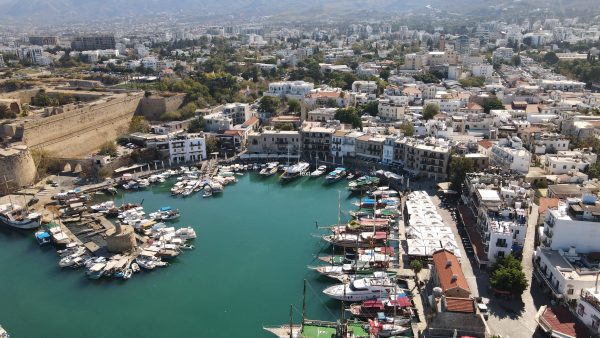
Places to Go in North Cyprus
North Cyprus is a beautiful and historic destination, with a range of attractions and places to explore. Here are some of the top places to visit in North Cyprus:
- Kyrenia Castle: This impressive castle is located in the heart of Kyrenia and dates back to the 16th century. It offers stunning views of the harbor and houses a museum and a shipwreck exhibition.
- Bellapais Abbey: This 14th-century abbey is located in the village of Bellapais and is known for its beautiful Gothic architecture and serene setting.
- St. Hilarion Castle: This fairy tale-like castle is perched on a hilltop and offers stunning views of the surrounding landscape. It’s one of the best-preserved castles in North Cyprus and is a must-visit for history buffs.
- Salamis: This ancient city was once an important trading port and is now a fascinating archaeological site. It features well-preserved ruins, including a Roman amphitheater and bathhouse.
- Nicosia: The capital of North Cyprus is a vibrant and cosmopolitan city, with a range of historic and modern attractions. The old city is particularly charming, with its narrow streets and ancient buildings.
- Karpas Peninsula: This scenic peninsula is located in the northeast of North Cyprus and offers stunning beaches, hiking trails, and wildlife. It’s a great place to escape the crowds and enjoy some natural beauty.
- Buffavento Castle: This impressive castle is located on the highest peak in North Cyprus and offers stunning views of the surrounding area. It’s a challenging hike to get to the top, but the views are well worth it.
These are just a few of the many attractions and places to visit in North Cyprus. Whether you’re interested in history, culture, nature, or just relaxing on the beach, there’s something for everyone in this beautiful destination.

